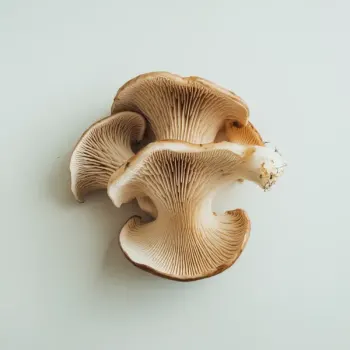Maitake vs Oyster Mushrooms are two distinct types of edible fungi with unique flavors and textures used in culinary dishes to enhance taste and add nutritional value. Maitake has a robust, earthy flavor, while Oyster mushrooms offer a delicate sweetness.

Maitake mushrooms, also known as Hen of the Woods, are a type of edible fungus known for their rich, earthy flavor and their ability to boost umami in dishes. They grow in clusters and have a feathery appearance.

Oyster mushrooms are named for their oyster-shaped cap and come in a variety of colors. They are popular for their delicate, slightly sweet taste and velvety texture, which work well in a range of recipes.
Maitake mushrooms have a more robust, earthy flavor and a firmer texture compared to the delicate, sweet taste and tender texture of Oyster mushrooms. Maitakes are also known for their medicinal properties, while Oysters are prized for their versatility in cooking.

Your ultimate Recipe Box, Meal Planner, and Cooking Class all in one
When used in risotto, Maitake mushrooms add a hearty depth of flavor and a pleasant chewiness. They are best sautéed first to enhance their rich taste. Oyster mushrooms contribute a subtle sweetness and a silky texture to risotto. Their delicate flavor is best preserved by adding them towards the end of cooking.
In stir-fries, Maitake mushrooms hold up well to high heat and absorb flavors beautifully. They offer a satisfying bite that complements crisp vegetables and bold sauces. Oyster mushrooms add a mild, sweet flavor and a tender yet slightly chewy texture to stir-fries. They cook quickly, making them a convenient choice for a fast meal.
Maitake mushrooms work wonderfully in soups and stews, where they can simmer and infuse the broth with their woodsy flavor while maintaining their texture. Oyster mushrooms bring a lightness to soups and stews, offering a gentle contrast to heavier ingredients. They should be added toward the end of cooking to prevent over-softening.
Both Maitake and Oyster mushrooms are low in calories and rich in nutrients like protein and fiber.
| Nutrient | Oyster ( per 100 grams ) | Maitake ( per 100 grams ) |
|---|---|---|
| Fat | 0.4g | 0.2g |
| Fiber | 2.3g | 2.7g |
| Sodium | 18mg | 1mg |
| Protein | 3.3g | 1.9g |
| Calories | 33 | 31 |
| Carbohydrates | 6.1g | 6.9g |
Maitake mushrooms have a stronger, earthier flavor, while Oyster mushrooms are known for their delicate sweetness.
Yes, but keep in mind that Maitakes have a bolder flavor and denser texture that may alter the dish's intended taste and consistency.
Maitake mushrooms should be cleaned with a brush or damp cloth and can be sautéed, grilled, or roasted to bring out their flavor.
Oyster mushrooms are low in calories, high in protein and fiber, and contain various vitamins and minerals. They also have cholesterol-lowering properties.
Both mushrooms are excellent in vegan cooking. Choose Maitake for a more substantial texture and Oyster for a lighter, subtler flavor profile.